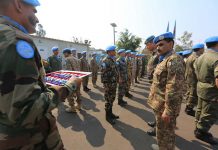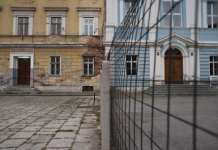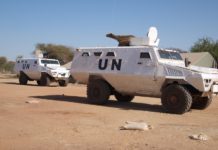Tensai, United States
What are your tangible suggestions for improving negotiations with Syrian government for cross border access, and why do you believe that greater pressure from OCHA and ICRC would yield results?
With regard to the question of access, the main challenge faced by aid organizations in Syria is not the improvement of their relationship with the Syrian government. It is rather to gain leverage over the Syrian government in order to obtain a formal or de facto acceptance of cross border operations. The first tangible step in that direction is to publicly acknowledge, as Valerie Amos and John Ging did, the failure of the current aid operations to reach all those in need, especially in rebel held areas, and the necessity for cross border access.
To me, alerting public opinion is a prerequisite for humanitarian organizations seeking to mobilize diplomatic support (including from Damascus closest allies) with the aim of:
– Negotiating a tripartite agreement on cross border access (according to the models of « Operation Lifeline Sudan » negotiated by UNICEF in Sudan at the end of the 1980s, or to the « Humanitarian consensus » negotiated in Afghanistan by Aga Khan in 1988-1989, then Secretary-General appointed « Coordinator for Humanitarian and Economic Assistance Programmes relating to Afghanistan »)
– Negotiating directly with the opposition exerting a de facto control on parts of the territory, while at the same time mitigating the risk of retaliation by the central government in the areas it controls. In that regard, the model developed in Liberia between 1990 and 1993 by the UN Special Coordinating Office for Liberia headed by Ross Mountain is a relevant example.
Yet of course, there is no guarantee that such an effort by OCHA and/or the ICRC would yield results. But it is 100% guaranteed that no efforts will yield no result!
Heba, United Arab Emirates
Is humanitarian space actually shrinking (or has it always been this way?) and if so, what are some new approaches to securing access, given the modern-day obstacles (bureaucratization of aid, counter-terrorism legislation, govt restrictions, drones, etc)
Since I’ve started my humanitarian career twenty years ago, I’ve always heard my colleagues deploring their increasing inability to assist victims of conflicts and natural disasters. This constant pessimistic appraisal might be related to the expansion of humanitarian ambitions and resources over the past 20 years. The more aid actors have ambitions (like « linking relief to development », « aiding peace », « fighting impunity », etc), the more they encounter resistance, and the more they are disappointed when they fail to achieve those.
This is also true for « Dunantist » organizations, which claim to uphold the apparently more limited ambition of helping populations survive the devastation of war.
That being said, providing assistance according to civilian needs and not military necessity has always been a struggle given the propensity of all belligerents to suck humanitarian resources in support of the war effort. At the end of the day, our success relies on our ability to negotiate the best compromise between our interests and those of the various political and military powers we are dealing with. In that sense, the manipulation of humanitarian aid by local and international actors is not a misuse of humanitarianism but its principal condition for existence. What humanitarian agencies call the « humanitarian space » or what ICRC calls the « trust and confidence of the parties » is indeed a compromise resulting from a balance of forces and interests, a tacit or formal agreement based on mutual concessions between political and humanitarian actors.
From this point of view, the challenge of humanitarian actors is not to be recognized as « genuine humanitarians » in order to secure « full and unhindered access », but to reach an acceptable compromise with the various political and military powers they have to deal with. This situation raises two questions:
– A normative one: what is an acceptable compromise? At which point do we cross the blurred but very real line beyond which our operations support more the tormentors than the victims?
– A pragmatic one: how do we tip the balance of forces and interests in our favour?
I think that this approach and questions are far more fecund for humanitarian actors than the illusive search for a space safe from all political influence. Humanitarian actors must accept themselves as full-fledged political actors, with a specific agenda, who alternately engage in cooperative and confrontational relationships with states, international organizations, and non-state players. We have developed extensively this argument in our latest book, Humanitarian Negotiations Revealed (available online at : http://www.msf-crash.org/livres/en/humanitarian-negotiations-revealed)
Christina, United States
Observers have noted the resurgence of sovereignty as a key trend that will impact the future of humanitarian action, this will require traditional humanitarian agencies to engage further with municipal authorities and perhaps confront a new reality where non-traditional actors (such as the private sector) may become the providers of choice. How do you see agencies adapting to such a trend? Conversely, do you think this is a desirable evolution of the way that aid is sought and received?
What is called the « resurgence of sovereignty » is the centrality of the state in deciding and implementing assistance policies toward war affected populations in certain countries. States like Sri Lanka, Ethiopia, or Pakistan have indeed taken a leading role in the direct provision of relief. The same have developed a remarkable capacity for organising and justifying the subjugation of aid organisations to their political and military priorities.
On the one hand, this evolution appears desirable to aid organizations, such as MSF, which refuse to substitute completely for state responsibilities with regards to assistance and protection of populations in need. Local governments have much greater legitimacy and responsibility in caring for their own citizens than international aid agencies.
On the other hand, this evolution tends to entrench exclusion of certain groups from relief assistance, especially in authoritarian regime or/and when the sovereignty of the state is challenged by armed groups and does not extend to the entire territory. This is the currently the case of Syria, whose northern areas are de facto administered by insurgents. The inhabitants of these zones are excluded from relief operations run from Damascus, as the government of Syria opposes direct cross border operations while drastically limiting cross line access.
So called « non traditional aid actors », such as the private sector or relief networks based in emerging countries, might just be submitted to the same kind of constraints as UN, ICRC and western based NGOs. Therefore, they are not meant to become the provider of choice in context where the state intends to exert full control over aid operations. Enhancing the leverage of humanitarian actors toward strong states requires at least four steps:
– First of all, aid actors must diversify their political supports, both within and outside of the country they are operating in. Even in authoritarian states, there are poles of resistance they can partner with in order to confront state discriminatory assistance policies.
– Aid actors should change their negotiating pattern, abandon the lecturing and paternalistic tone usually associated with the humanitarian rhetoric. In doing so, they ought to discuss the arguments of the powers trying to subjugate them than making recitals of international humanitarian law.
– In addition, aid actors must sharpen their technical expertise and operational capacity in order to weight more in the balance of force and interest, thanks to the importance of their potential contribution to innovative and efficient relief policies.
– Last but not least, aid actors should not be afraid to enter into the public debate to pressure strong governments. Even authoritarian states care for their public, international and internal image, and are sensitive to the potential damages humanitarian agencies can cause by speaking out.
LIRE L’INTERVIEW SUR http://www.hpcrresearch.org/
Derniers articles parCrash-MSF (voir tous)
- Perception du danger et gestion de la sécurité – 4 avril 2014
- Three questions to Fabrice Weissman on current humanitarian challenges – 2 juin 2013
- Perspectives pour l’avenir de l’action humanitaire – 29 avril 2013








